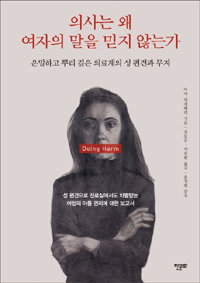Gender bias affects medical diagnosis and treatment
Gender bias affects medical diagnosis and treatment
Posted November. 02, 2019 08:04,
Updated November. 02, 2019 08:04

A survey of patients has indicated that women are more likely to be told by doctors to lose weight than men. It is also more likely that doctors misjudge the symptoms to be psychogenic and make a wrong diagnosis when women speak about the same pain and physical symptoms as those of men.
The author of the book reveals how gender prejudice has affected the diagnosis and treatment in the medical industry for the past hundreds of years. With gynecology emerging as a new field of specialization in the mid-19th century, medicine for female patients came to be thought of being related to reproductive organs. Until the 20th century, around 150,000 oophorectomies were performed in the United States alone.
In the reality where most doctors and professors of medicine are male, it is anything but easy to address the lack of understanding. Racial and social prejudices would often make things worse. Colored women are more than often accused of being drug addicts, while Caucasian women are told they are worrying too much about their health. Such bias causes huge losses in their diagnoses and medical treatment.
In emergency rooms, it takes 49 minutes for men to receive treatment for abdominal pain while women have to wait 65 minutes for the same treatment. A young woman who had a heart attack is seven times more likely to be sent home than a man. The author criticizes that the only model that modern medicine has adopted over the past decades is based on a Caucasian man who weighs 70 kilograms. Doctors often misjudge abdominal pain as cramps and stress the influence of hormones when they face female patients, according to the author.
The book tells stories collected through various statistics and extensive interviews with doctors and patients that readers may find shocking.
Yet, medical terms and related figures in minute detail may be too difficult for ordinary readers to understand, and the sheer number of pages, 540, can also make them hesitant to open the book. However, for those who are aspiring to become doctors or studying medicine and science, this book will serve as a good textbook that shows the impact of gender bias in their own medical fields.
imi@donga.com






